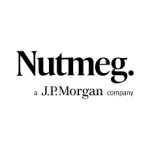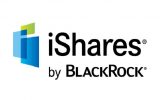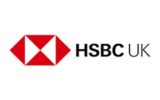Best FTSE 100 Tracker Investment Funds: Our 5 Top Picks
If you are looking for inspiration for investing in the FTSE 100, we have put together 5 of the UK’s lowest cost investment tracker funds you might want to consider.
We also outline some of the features you should look for an index tracker and some of the factors to consider when selecting an investment platform for the fund you invest in.
All of the funds featured below can be put in an ISA, junior ISA or Self Invested Pension (SIPP) or as a direct investment from £20 per month.
1. iShares Core FTSE 100 UCITS ETF
Available via: Interactive Investor Platform »
2. Vanguard FTSE 100 UCITS ETF
Available via: Hargreaves Lansdown Platform »
3. Legal & General UK 100 Index Trust
There are no tables for this criteria
4. HSBC ETFS PLC FTSE 100 UCITS ETF
Available via: Hargreaves Lansdown Platform »
5. iShares 100 UK Equity Index
Available via: Hargreaves Lansdown Platform »
What is a FTSE 100 tracker fund?
A tracker fund or exchange traded funds (ETFs) are investments that look to mirror the performance of a particular market index.
They are passive investments and aim to replicate the movement of an index and deliver returns that are closely matched to the index being tracked. With a fund or ETF that tracks the FTSE 100 your returns will reflect the performance of the top 100 UK firms by capitalisation that make up the index.
How does a FTSE 100 index tracker work?
Tracker funds and ETFs work by:
- Full Replication – physically buying shares of the 100 companies that make up the FTSE 100 or by
- Partial replication – using more complex investments to replicate the movement in the index.
What is tracking error in a FTSE 100 index tracker fund?
Each of the funds listed above employ a “passive” investment strategy designed to replicate the performance of the FTSE 100 index. Some tracker funds attempt to fully replicate the index by holding all of the constituent shares in approximately the same proportion as their weighting in the index. Other tracker funds use an index sampling process holding a representative sample of shares which approximate to the full index mirroring key risk factors and other characteristics.
Tracking error measures the volatility of the return difference between the fund and the FTSE 100 index. It is calculated as the standard deviation of the tracking difference between the tracker fund and the index (gross of fees for the trailing 36-month period, or since the fund’s inception if it does not have 36 months of performance history).
A low tracking error means a index tracker fund is following closely the performance of the FTSE 100 Index. The tracking error gives you a measure of how closely the fund is replicating the FTSE 100.
With index tracker finds which are passively managed generally the lower the tracking error the better.
What is the cheapest way to invest in a FTSE 100 index tracker fund?
One of the attractions of investing in tracker funds is that because they are passive investments where no fund manager is involved the annual ongoing costs are much lower than managed fund equivalents. Over time the impact of annual charges can have a significant impact on your investment value, so tracker funds are a great way to get low cost exposure to the stock market.
A way to compare funds based on cost is to contrast the OCF (Ongoing Charge Figure) which represents the total annual cost of running the fund including administrative costs.
Below we have selected 3 Top Low Cost FTSE 100 Tracker Funds:
Legal & General UK 100 Index Trust
OCF – 0.06%
Tracking error: 0.12 (over 3 years)
HSBC ETFS PLC FTSE 100 UCITS ETF
OCF – 0.07%
Tracking error: 0.07 (over 3 years)
iShares 100 UK Equity Index
OCF – 0.07%
Tracking error: 0.11 (over 3 years)
What is the best investment platform to use for a FTSE 100 tracker fund?
Today’s investor in 2020 has a lot of options to choose from. One of the key considerations is cost. However picking the “cheapest” is not as simple as it sounds, as each platform has its own costing model which often makes it difficult to compare like for like. Below we have outlined what can expect to pay in charges for 4 of the UK’s largest most popular investment platforms based on investing in a low cost tracker fund (iShares Core FTSE 100 UCITS ETF).
| Investment Platform | Annual Platform Fee | iShares OCF Fund Charge |
Annual Charge on £10,000 |
Annual Charge on £20,000 |
Annual Charge on £40,000 |
Annual Charge on £100,000 |
Annual Charge on £250,000 |
|---|---|---|---|---|---|---|---|
| Interactive Investor | £9.99 pm flat fee | 0.7% | £126.88 | £133.88 | £154.88 | £189.88 | £294.88 |
| Hargreaves Lansdown | 0.45% up to £249,999, reducing to 0.25% from £250,000 to £1m, reducing to 0.10% from £1m to £2m. No fee for assets over £2m |
0.7% | £52 | £104 | £208 | £520 | £1,300 |
| AJ Bell | 0.25% on first £250K | 0.7% | £32 | £64 | £128 | £320 | £800 |
| Fidelity | 0.35% from £7,500 to £249,999, reducing to 0.2% from £250,000 to £1m. No fee for assets over £1m |
0.7% | £42 | £84 | £164 | £420 | £675 |
As you can see the right platform for you will depend on how much you are investing.
Other considerations include:
- How easy is the platform to use and what tools and research is on offer
- What fund discounts are there? different platforms have negotiated different discounts on funds
- Customer reviews – useful in understanding strengths and weaknesses of platform providers
- Level of customer service provided
Undecided on your options?
When it comes to making investment decisions using the services of a qualified independent investment adviser may be worth considering.
Most IFAs will offer a free no obligation initial discussion. A good adviser based on what you are looking to achieve will put together a plan for your situation.
Important Risk Information:
This website contains information only and does not constitute advice or a personal recommendation in any way whatsoever. The value of investments and income from them can fall as well as rise and you may not get back the full amount invested. The tax efficiency of ISAs is based on current tax law and there is no guarantee that tax rules will stay the same in the future.
Different types of investment carry different levels of risk and may not be suitable for all investors. Prior to making any decision to invest, you should ensure that you are familiar with the risks associated with a particular investment and should read the product literature. If you are in any doubt as to the suitability of a particular investment, both in respect of its objectives and its risk profile, you should seek independent financial advice.
Tags








